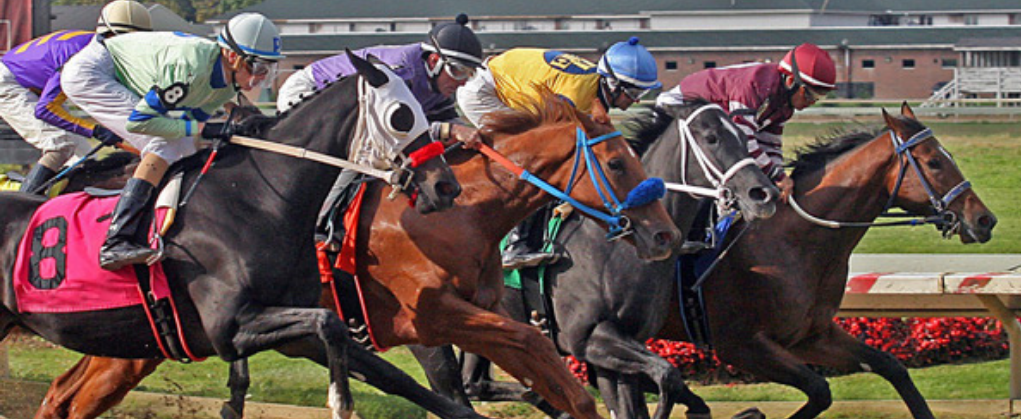A Thoroughbred horse organization and affiliates in 11 states are suing to stop the Horseracing Integrity and Safety Act (HISA), calling its delegation of oversight to a private authority a violation of the United States Constitution.
The National Horsemen’s Benevolent and Protective Association (HBPA) and its affiliates in Arizona, Arkansas, Indiana, Illinois, Louisiana, Nebraska, Oklahoma, Oregon, Pennsylvania, Washington and West Virginia, want HISA declared unconstitutional, the implementation of the law halted and monetary damages. The sum amounts to $1 and refunds of any fees charged to owners and trainers by the new organization.
The lawsuit, which was filed by the Liberty Justice Center, in the U.S. District Court for the Northern District of Texas, alleges that the federal Horseracing Integrity and Safety Authority is illegal because it delegates legislative authority to a private organization and private individuals. The Authority is responsible for implementing anti-doping and racetrack safety protocols, regulations and penalties. The U.S. Anti-Doping Agency (USADA), a private organization, is enforcing the drug control program. The law, which was passed as part of the Dec. 21, 2020, COVID-19 stimulus bill, was a response from federal lawmakers after a series of doping scandals and equine racetrack fatalities.
The law allows the Authority to draft governmental rules on equine medication and safety; impose fees to horse owners and trainers to finance operations; determine rule violations, impose penalties and sanctions; issue subpoenas and investigate alleged violations, and launch civil actions in federal court to enforce rules. Although the Federal Trade Commission has the authority to reject or request the modification of rules established by the Authority, it cannot draft rules or enforce rules.
“All Americans should be concerned when Congress gives power to regulate an entire industry to a private group of industry insiders,” says Brian Kelsey, senior attorney at the Liberty Justice Center. “This goes way beyond setting rules for the sport of horse racing. This is not the NBA or the NFL. The ‘Authority’ has the power to make laws, issue subpoenas and effectively tax owners with little real oversight. Placing that power in a private organization is illegal and must be stopped.”
Citing the Constitution and subsequent Supreme Court decisions, the Liberty Justice Center claims that it is illegal for Congress to delegate its legislative authority.
“Under the law, this elite group within the industry is allowed to monopolize power and change not only the rules but the federal laws that govern horse racing across the country,” according to the Liberty Justice Center. “With the passage of the Horseracing Integrity and Safety Act, Congress ends 125 years of state regulation and nationalizes control over horse racing by creating and ceding federal lawmaking power to a private, non-governmental body.”
Supporters of HISA — including Rep. Paul Tonko, who sponsored the bill in the U.S. House of Representatives — said the bill would “modernize horseracing” by delivering “common sense medication and track safety standards that will lift this noble sport to higher standards of integrity and safety.”
Opponents such as Bill Walmsley, president of the Arkansas HBPA, say it consolidates power to an unelected board and establishes an unfunded mandate that threatens the livelihood of many HBPA members and the economic contributions for states that depend upon them, such as Kentucky, Louisiana and Pennsylvania.
“There’s a real concern among Thoroughbred owners that this could put us out of business,” he says. “By passing HISA, Congress picked winners and losers and put well-connected owners in charge of horse racing across the country. There was no serious debate or discussion about the costs, let alone the legality of creating a private group to control horse racing.”
The Jockey Club, which supports the legislation, says in a statement that it’s confident the law will stand and criticizes the HPBA’s efforts.
“We are confident that the law is constitutionally sound and legal, as it is patterned precisely after other long-standing law,” according to the statement. “It’s a shame that the National HPBA has chosen this expensive and time-consuming path, but it is consistent with their well-known pattern of conduct that has served to block or water down needed reforms that the vast majority of the equine industry and animal welfare organizations support.”
Learn More
Why Equine Bones Break and Tendons Rupture
Understanding anatomy and physics can help prevent severe injuries.
House to Vote on Horseracing Integrity and Safety Act
On the same day that Senate Majority Leader Mitch McConnell, R-Ky., and three co-sponsors introduced the Horseracing Integrity and Safety Act, the House Energy and Commerce Committee voted, 46-5, to send H.R. 1754 to the full House.
Horseracing Integrity Act has “Constitutional Flaws,” USTA Says
The Horseracing Integrity and Safety Act has “several serious constitutional flaws,” according to Russell Williams, president of the United States Trotting Association, citing research by Gibson Dunn. The law firm successfully persuaded the U.S. Supreme Court to strike down a federal law prohibiting states from permitting and regulating sports betting.








